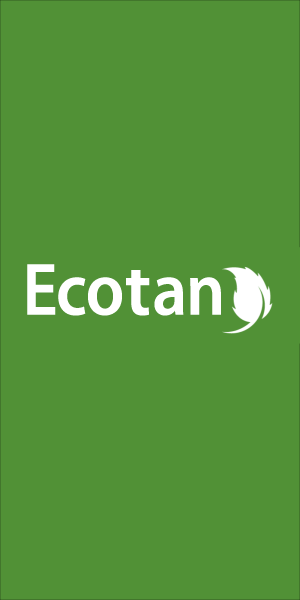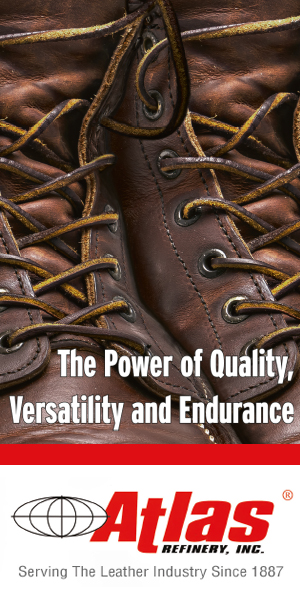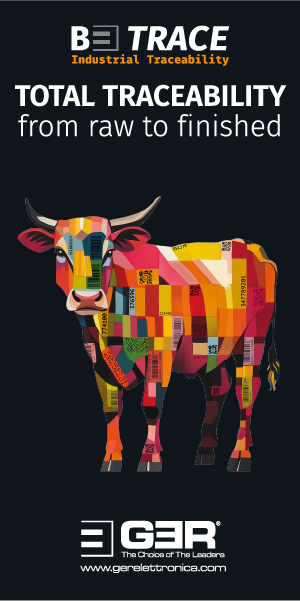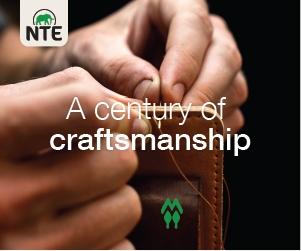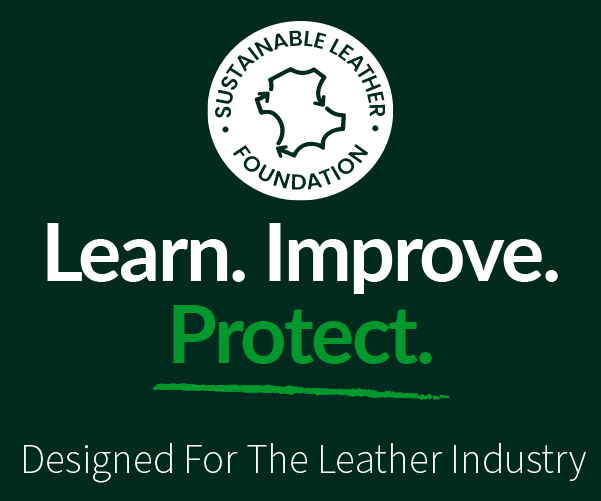Erem’s biocircular ambitions

The CEO of a new brand, and great-grandson of the Timberland founder, tells us how leather and sustainable materials are central to his desire to demonstrate a new way of working.
Eric Swartz thought he was finished with the footwear industry when he sold Timberland – a company founded by his grandfather, Nathan – to VF Corp in 2011 but his son Noah had other ideas. An avid adventurer, the youngest Swartz had spotted a gap in the market for hardwearing desert boots that would support wearers in the toughest terrain but that would also be made with exacting environmental standards. He convinced his father to partner him for Erem, a brand that officially launched at the end of 2021 and which hopes to demonstrate a new way of working.
“As a fourth-generation bootmaker, I absolutely insist that there is a different way to do things because there needs to be a different way to do things,” Noah Swartz tells World Leather. “The scale of the issues facing us requires a new paradigm and a new model; Erem believes that Biocircular, which we’ve already achieved, can be this model.”
‘Biocircular’, a trademarked term, refers to bio – made only from materials and constructions that have a proven path back to nature – and circular, where there is a responsible next life for each component. Noah Swartz believes this way of working is crucial because the climate crisis requires fundamentally different approaches to how we do things, including how we manufacture and enjoy products that seem as innocuous as hiking boots. “Most people don’t realise their favourite pair of performance footwear is likely just plastic layers or natural materials so processed with things like heavy metals that they are basically unrecognisable, glued together with toxic chemicals.”
Food-grade tannins
To counter this, Erem focuses on leather. It is sourced from a Leather Working Group gold-rated tannery and tanned with plant-based, food-grade formulations that are grown and processed sustainably. He says this delivers the incredible performance of a conventionally tanned material but also breathes better, which is critical for the desert, while eliminating the heavy metals involved with chrome tanning and thus can be restreamed at the end of its life into organic fertiliser.
The Xerocole collection uses reverse grain leather which might include marks such as tick bites or scratches that, while functionally perfect, would normally be discarded. On its website, it explains that the boots might seem hairy, but this nap is also a natural part of the leather, and these materials have been selected to reduce the leather waste, contrary to most leathergoods. “The 2mm thick, reverse full-grain hide is incredibly durable and protective, both of which are critical for performance in extreme desert terrain,” adds Mr Swartz. “So, unbelievable performance, yet the ability to return to the earth as organic fertiliser. A very rare combination.”
Erem has also partnered US-based non-governmental organisation Savory Institute to source leather from regenerative farms that improve soil health and sequester carbon through rotational techniques and restore grasslands through “holistic planned grazing”. Timberland, Ugg and Burberry are also among investors in the programme, funding research into the benefits the system has for the soil and ecosystem, and how this affects the animals’ lives and reflects in the leather.
The circularity of leather will be evident through the Reboot repair programme. While Noah is not expecting the boots to wear down any time soon, if they do eventually, customers will be able to send them back to be fixed. “Fundamentally, Erem believes that businesses should take responsibility for the entire life cycles of their products; collectively, we need to stop thinking just to the point of sale.”
Component strategy
While many brands tout a more sustainable way of working, the answers, according to Mr Swartz, are “at our fingertips”: replace nylon with linen, polyester with Tencel and EVA with cork.
Erem’s one-piece outsole is made of 70% recycled rubber with a proprietary biodegradability accelerator that enables biodegradation in seven years or less. Erem works with a partner that can devulcanise the rubber soles, allowing them to be turned into new biodegradable rubber products, including new Erem gear.
The Tencel lyocell fibres for the lining come from sustainably managed forests, supplied by Lenzing in Austria. Erem shuns plastic and uses brass for the eyelets because of its durability and its ability to be recycled without losing its performance. The raw material used in Erem’s insoles comes from the production waste of cork stoppers and other products. The supplier transforms the cork “waste” into granules that can be used for shoe components.
Erem’s launch was delayed by three months as they tested using linen instead of nylon for the outsole thread. “For a start-up like ours, three months is quite substantial. But three months of innovation to prove that we can take a source of bad plastics out of the supply chain? That is a trade I would make over and over again,” explains Noah Swartz.
Prickly pears
Part of its ethos is investing back into ecosystems and the desert environment, and the company has committed to planting one million prickly pears. Valued by indigenous cultures, they are fast-growing, water-efficient plants that capture carbon dioxide, produce fruit and restore dehydrated rivers. Erem has planted 250 already and will use sales proceeds to plant more. The brand is also working with Natural Capital Partners to achieve CarbonNeutral certification.
Longer-term, it outlines goals for product expansion, performance innovation and sustainability. This includes building on the work it is doing with the Arizona Trail Association, making access to the outdoors more equitable, and increasing its work with software company Toxnot around environmental transparency in the supply chain.
With investors including his grandfather, Noah Swartz is confident in Erem’s future. “We are a start-up, but have well over 150 years of footwear experience around our table. Nimble, expert and a bit audacious – we think this positions us very well to succeed as a challenger brand.”
His father, co-founder Jeff, agrees: "My grandfather, Nathan, taught me responsibility and modelled resilience and courage. My dad, Sidney, taught me how to dream and what determination is. But it's my son, Noah, who is teaching me how to stretch imagination and deliver on our ideals. It took four generations, but we are getting somewhere with the launch of Erem.”
Erem is targeting a way of working that is in tune with the environment. “Leather fits in extremely well into this standard,” says Noah Swartz.
All Credits: Erem








